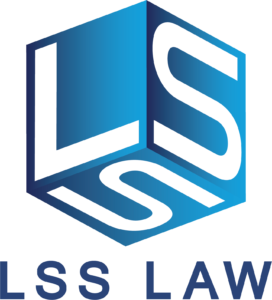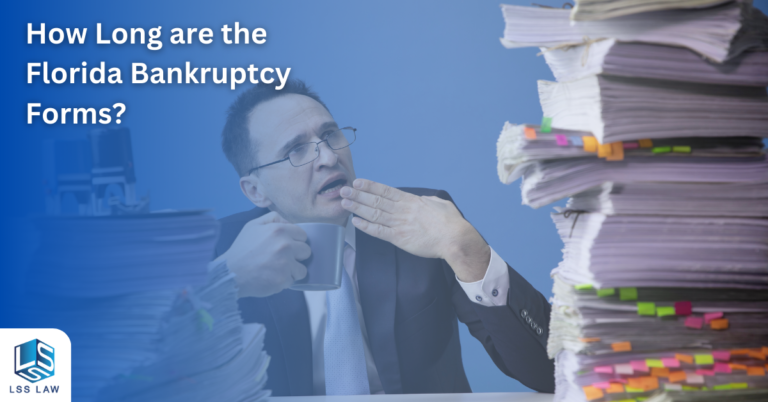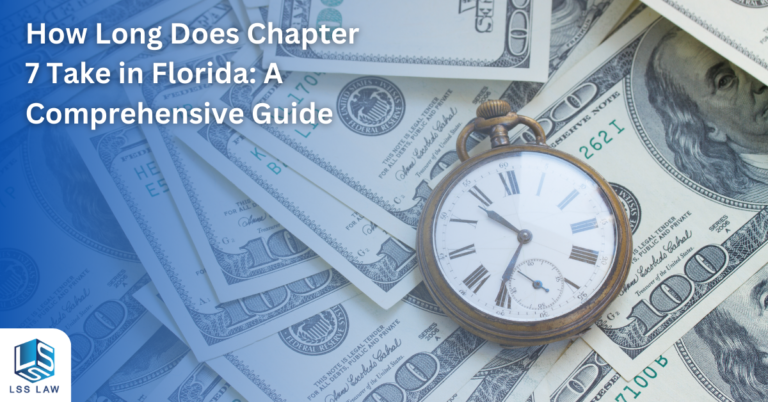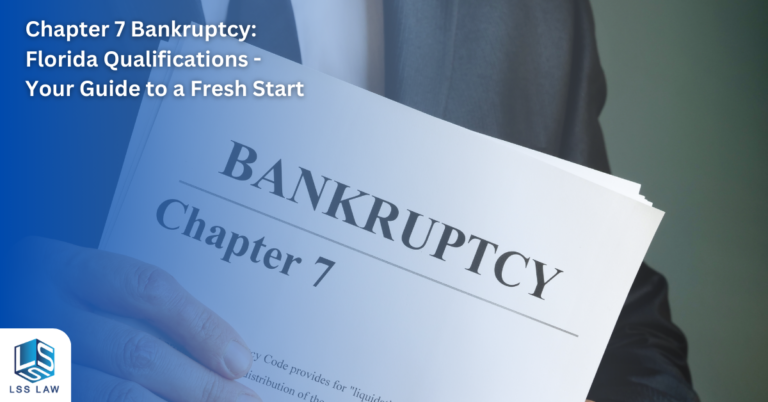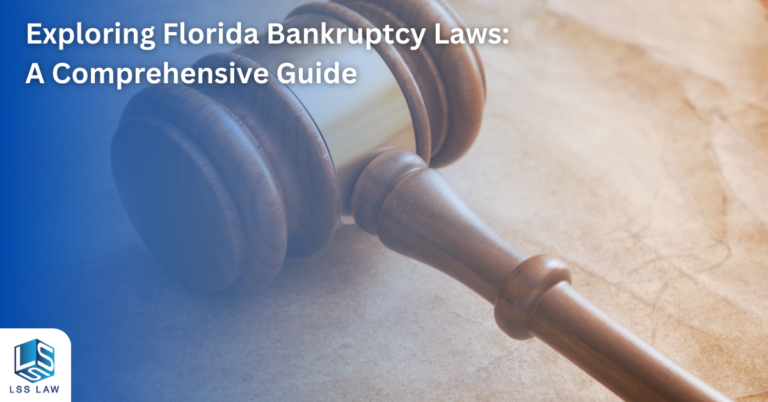Dealing with debt can be overwhelming and stressful, but it’s essential to remember that there is hope. Bankruptcy is a powerful financial tool that can help you regain control of your financial life and move forward with a clean slate. In this article, we’ll explore what happens when you file bankruptcy and how it can help you find the debt relief you need.
What Happens When You File Bankruptcy: The Basics

When you file for bankruptcy, you’re essentially asking the federal court to help you eliminate or restructure your debts. There are two main types of personal bankruptcy: Chapter 7 and Chapter 13. Each type has its own set of rules and procedures, but both are designed to provide debt relief and a fresh financial start.
Chapter 7 Bankruptcy: Liquidation
Chapter 7 bankruptcy, also known as liquidation or straight bankruptcy, involves the sale of your nonexempt property to pay off your creditors. This type of bankruptcy is generally best for individuals with a large amount of unsecured debts, such as credit card debt and medical bills. To qualify for Chapter 7, you must pass a means test that compares your income to the state’s median income and determines your disposable income after necessary living expenses.
Chapter 13 Bankruptcy: Repayment Plan
Chapter 13 bankruptcy, on the other hand, is for individuals with regular income who can commit to a structured repayment plan. This type of bankruptcy allows you to keep your property while you repay your debts over a period of three to five years. Chapter 13 is often a good option for those with secured debts, such as a car loan or mortgage, as it allows you to catch up on missed payments and avoid foreclosure or repossession.
The Bankruptcy Filing Process
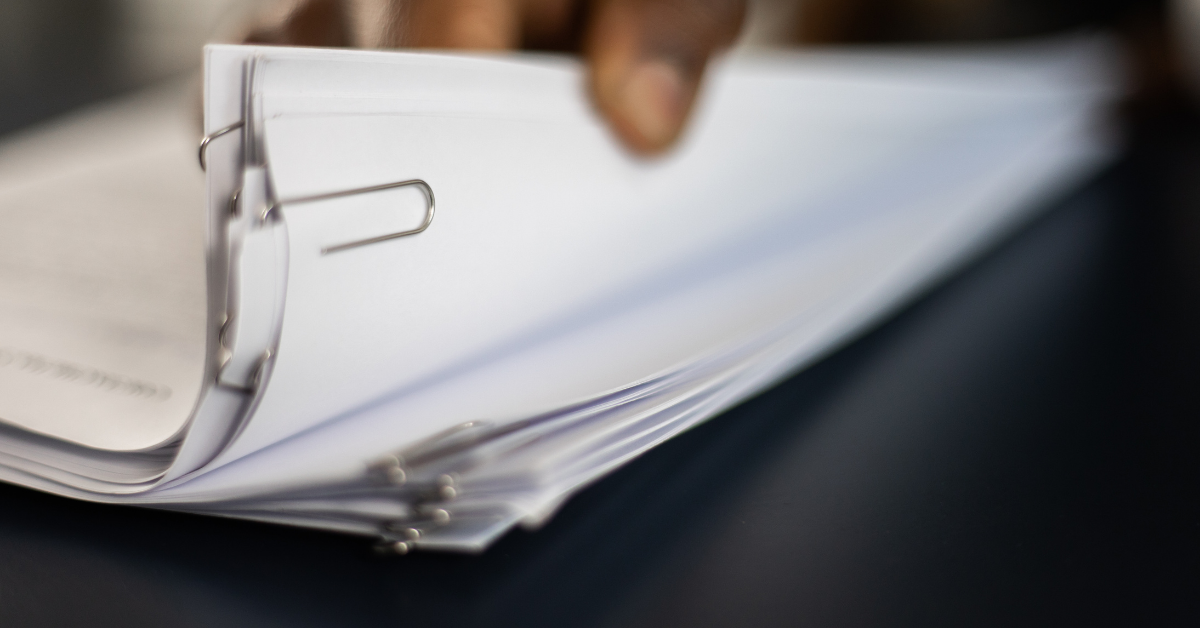
Filing for bankruptcy is a complex process that requires careful planning and attention to detail. Here are the main steps involved in filing for bankruptcy:
- Gather your financial records: Before you can file for bankruptcy, you’ll need to compile a comprehensive list of your assets, debts, income, and expenses. This information will be used to complete the various forms required for your bankruptcy petition.
- Complete credit counseling: Before filing for bankruptcy, you must complete a required credit counseling course from an approved provider. This course is designed to help you understand your financial situation and explore alternatives to bankruptcy.
- Prepare and file your bankruptcy petition: Once you have gathered your financial records and completed credit counseling, you can begin preparing your bankruptcy petition. This involves filling out a series of forms that detail your financial situation and proposing a repayment plan (if filing for Chapter 13). Once your petition is complete, you’ll file it with the bankruptcy court.
- Automatic stay: Upon filing your bankruptcy petition, an automatic stay is put in place, which temporarily halts most collection actions against you. This means that creditors can no longer contact you or take legal action to collect on your debts.
- Meeting of creditors: After your petition is filed, you’ll be required to attend a meeting of creditors (also known as a 341 meeting). During this meeting, the bankruptcy trustee and any interested creditors can ask you questions about your financial situation and the information provided in your petition.
- Debt discharge or repayment plan: Depending on the type of bankruptcy you file, your debts will either be discharged (eliminated) or restructured through a repayment plan. In Chapter 7, unsecured debts like credit card debt and medical bills are typically discharged, while secured debts and certain non-dischargeable debts (such as child support and most tax debts) are not. In Chapter 13, you’ll work with the bankruptcy trustee to create a repayment plan that allows you to pay off your debts over three to five years.
- Complete debtor education: Before your debts can be discharged, you must complete a debtor education course from an approved provider. This course is designed to help you develop better financial habits and avoid future debt problems.
- Rebuild your credit: Once your bankruptcy case is complete, you can begin the process of rebuilding your credit. Although a bankruptcy filing will remain on your credit report for up to ten years, many bankruptcy filers see their credit scores improve over time as they follow the correct recommendations.
Bankruptcy is not a one-size-fits-all solution, and the process can be complicated. It’s essential to consult with an experienced bankruptcy attorney who can help you navigate the process and determine the best course of action for your unique financial situation.
The Impact of Bankruptcy on Your Financial Life
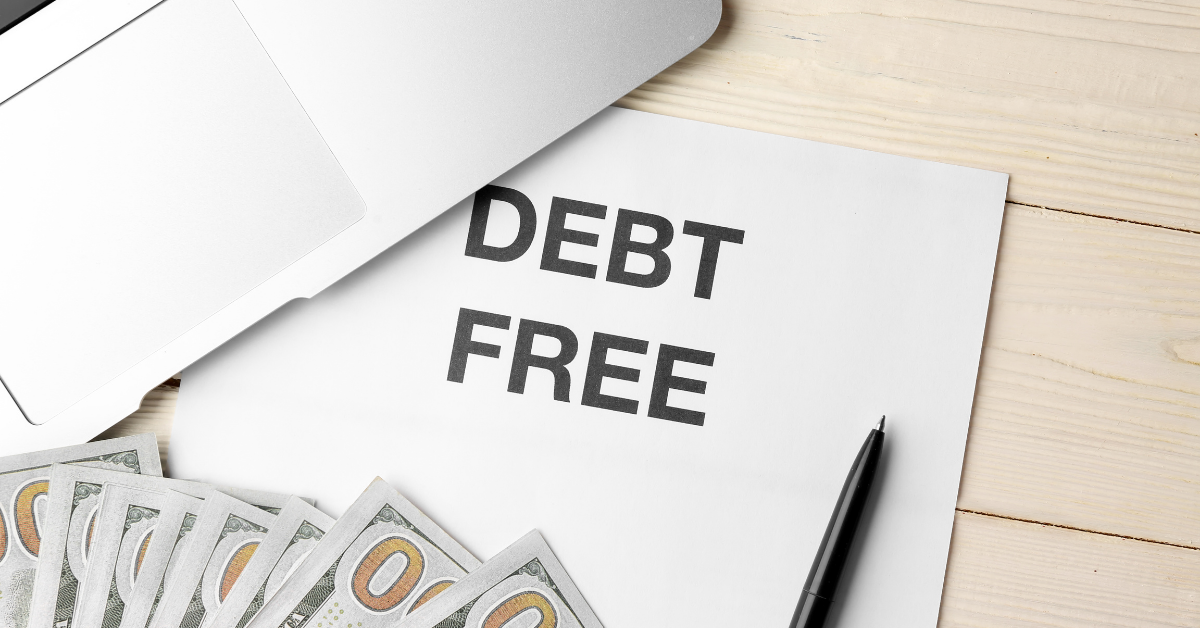
While bankruptcy can provide much-needed debt relief, it’s important to understand the potential impact on your financial life. A bankruptcy filing will remain on your credit report for up to ten years, which can make it more challenging to obtain credit, secure a loan, or rent an apartment. However, by following the correct recommendations and making responsible financial choices, many bankruptcy filers see their credit scores improve over time.
It’s also essential to remember that bankruptcy is not a quick fix for all debt problems. Some debts, such as child support, alimony, and most tax debts, cannot be eliminated through bankruptcy. Additionally, you may be required to sell some of your nonexempt property to pay off your creditors in a Chapter 7 bankruptcy.
Despite these potential drawbacks, bankruptcy can be a powerful tool for those struggling with debt. By eliminating or restructuring your debts and providing a fresh financial start, bankruptcy can help you regain control of your financial life and move forward with renewed confidence.
The Role of a Bankruptcy Attorney in the Process
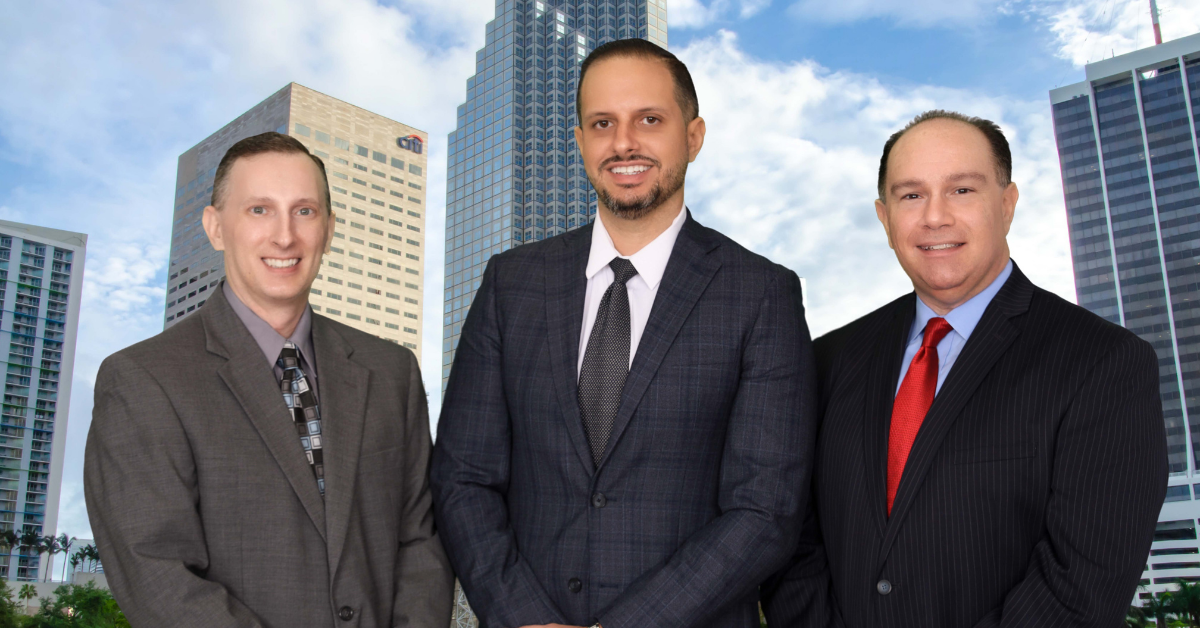
Hiring a bankruptcy attorney can be a crucial step in navigating the complex process of filing for bankruptcy. An experienced attorney can help you determine which type of bankruptcy is best suited for your financial situation and ensure that you complete all required steps accurately and efficiently. Here are some ways a bankruptcy attorney can assist you throughout the process:
- Evaluate your financial situation: A bankruptcy attorney can review your financial records and help you understand your options for debt relief, including whether filing for bankruptcy is the best course of action for you.
- Guide you through the means test: If you’re considering Chapter 7 bankruptcy, a bankruptcy attorney can help you complete the means test and determine if you qualify based on your income and expenses.
- Prepare and file your bankruptcy petition: A bankruptcy attorney can help you gather all necessary financial documents and complete the required forms for your bankruptcy petition. They will also ensure that your petition is filed correctly and on time with the bankruptcy court.
- Advocate on your behalf: During the bankruptcy process, your attorney will represent your interests in negotiations with creditors and at meetings, such as the meeting of creditors (341 meeting).
- Assist with the repayment plan: If you’re filing for Chapter 13 bankruptcy, a bankruptcy attorney can help you develop a feasible repayment plan that meets the requirements of the bankruptcy court and is acceptable to your creditors.
- Help you understand the discharge process: A bankruptcy attorney can explain the process of debt discharge and help you understand which debts will be eliminated or restructured through bankruptcy.
- Provide guidance on rebuilding your credit: After your bankruptcy case is complete, your attorney can offer advice on how to rebuild your credit and maintain a healthy financial life moving forward.
By working with a knowledgeable bankruptcy attorney, you can ensure that your bankruptcy case is handled professionally and efficiently, increasing your chances of a successful outcome and a fresh financial start.
Understanding Bankruptcy Exemptions

Bankruptcy exemptions play a crucial role in determining which assets you can keep during the bankruptcy process. Exemptions vary by state, and in Florida, there are specific exemptions designed to protect your property from being liquidated to pay off your creditors. Here are some key Florida bankruptcy exemptions:
- Homestead exemption: Florida’s homestead exemption allows you to protect an unlimited amount of equity in your primary residence, with certain size limitations based on location.
- Motor vehicle exemption: Florida’s motor vehicle exemption protects up to $1,000 of equity in your vehicle.
- Retirement accounts: Retirement accounts, such as 401(k)s, IRAs, and pensions, are generally exempt from liquidation in Florida bankruptcy cases.
- Personal property exemption: Florida allows a limited amount of personal property to be exempt, including household furnishings, clothing, and personal effects.
- Wildcard exemption: Florida’s wildcard exemption allows you to protect additional personal property up to a certain value.
- Wage exemption: In Florida, the wages of the head of the household are protected from garnishment.
Understanding your state’s bankruptcy exemptions is essential to ensure that you can keep as much of your property as possible during the bankruptcy process. A bankruptcy attorney can help you navigate these exemptions and ensure that your assets are protected to the fullest extent allowed by law.
Rebuilding Your Credit After Bankruptcy

Filing for bankruptcy can have a significant impact on your credit report, but it’s important to remember that this impact is not permanent. In fact, many people find that their credit scores begin to improve shortly after their bankruptcy discharge, as long as they follow the correct recommendations.
One of the most important steps to take after filing for bankruptcy is to develop good financial habits, such as creating and sticking to a budget, paying bills on time, and avoiding taking on new debt. Establishing a positive payment history is crucial for rebuilding your credit after bankruptcy.
Another helpful strategy is to obtain a secured credit card, which requires a deposit that acts as your credit limit. By using the secured card responsibly and making on-time payments, you can demonstrate your creditworthiness and begin to rebuild your credit. Over time, you may be able to graduate with an unsecured credit card with better terms and a higher credit limit.
It’s also important to regularly monitor your credit report and ensure that all information is accurate and up-to-date. You can obtain a free copy of your credit report from each of the three major credit reporting agencies once per year at AnnualCreditReport.com.
While the process of rebuilding your credit after bankruptcy takes time and effort, it is possible to achieve a healthy credit score and regain control of your financial life. Working with a knowledgeable bankruptcy attorney can help you navigate the process and set you on the path to a brighter financial future.
Bankruptcy and Secured Debts
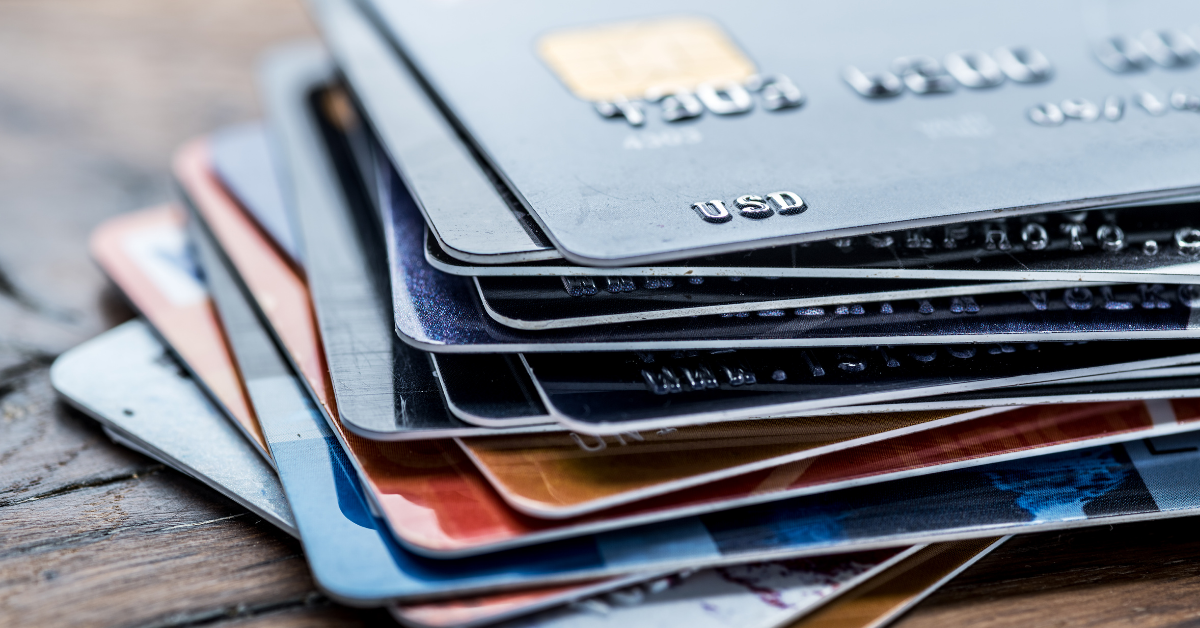
Secured debts, such as mortgages and car loans, are treated differently than unsecured debts in the bankruptcy process. A secured debt is backed by collateral, which means that if you fail to make payments on the debt, the creditor has the right to repossess the collateral to recover the money owed.
In a Chapter 7 bankruptcy, if you wish to keep the collateral (such as your home or car), you must continue making payments on the secured debt. If you are unable to make these payments, the creditor may be granted permission by the bankruptcy court to repossess the collateral. In some cases, you may be able to negotiate a loan modification or redeem the collateral by paying the current market value in a lump sum, but this will depend on your financial situation and the specific terms of your secured debt.
In a Chapter 13 bankruptcy, your repayment plan can include provisions for catching up on missed payments for secured debts, allowing you to keep the collateral as long as you continue making payments according to the plan. Additionally, in some cases, you may be able to cram down the principal balance of a secured debt, reducing it to the current market value of the collateral and potentially lowering your monthly payments.
Navigating the complexities of secured debts in bankruptcy can be challenging, and working with a bankruptcy attorney can help ensure that you understand your options and make the best decisions for your financial future.
What Happens When You File Bankruptcy: Frequently Asked Questions
We understand that filing for bankruptcy can be a confusing and overwhelming process. To help you better understand what happens when you file bankruptcy, we’ve compiled a list of frequently asked questions and provided answers from our experienced bankruptcy attorneys.
Can I keep my home and car if I file for bankruptcy?
In most cases, you can keep your home and car when you file for bankruptcy, as long as you continue making payments on secured debts like mortgages and car loans. Florida has specific exemptions that protect assets like homestead property and a certain amount of vehicle equity. However, it’s essential to consult with a bankruptcy attorney to discuss your specific situation and determine the best course of action.
How long does the bankruptcy process take?
The length of the bankruptcy process depends on the type of bankruptcy you file. Chapter 7 bankruptcy typically takes four to six months to complete, while Chapter 13 bankruptcy requires a three- to five-year repayment plan.
How will bankruptcy affect my credit score?
Filing for bankruptcy will negatively impact your credit score initially, but with responsible financial management, your credit can improve over time. A Chapter 7 bankruptcy remains on your credit report for ten years, while a Chapter 13 bankruptcy stays for seven years. However, many people find that their credit scores start to improve within a few years after filing for bankruptcy.
Can bankruptcy eliminate all of my debts?
Bankruptcy can eliminate most unsecured debts, such as credit card debt and medical bills. However, some debts cannot be discharged through bankruptcy, including child support, alimony, most student loans, and certain tax debts.
Do I need a bankruptcy attorney to file for bankruptcy?
While you can file for bankruptcy on your own, the process is complex, and may benefit from the guidance of an experienced bankruptcy attorney. A bankruptcy attorney can help you understand your options, navigate the legal process, and advocate for your best interests.
What is the difference between secured and unsecured debt?
Secured debt is backed by collateral, such as a mortgage or car loan, while unsecured debt is not backed by any collateral, such as credit card debt or medical bills. In bankruptcy, secured debts are typically treated differently than unsecured debts, with secured debts requiring continued payments to retain the collateral.
Contact Us to Learn More About What Happens When You File Bankruptcy
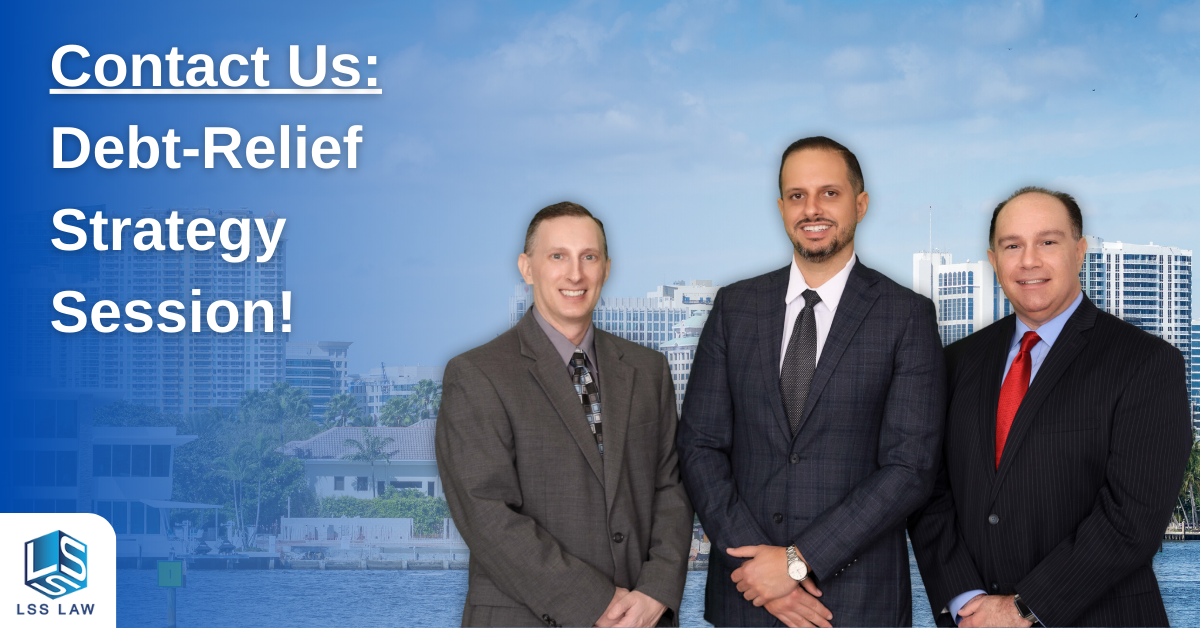
If you’re considering bankruptcy and want to learn more about what happens when you file, our experienced bankruptcy attorneys at LSS Law are here to help. Contact us today to schedule a free consultation for personal bankruptcies (Chapters 7 and 13) by calling (954) 466-0541 or visiting our contact page. We are committed to helping you remove the financial burden and open the door to a brighter future.
